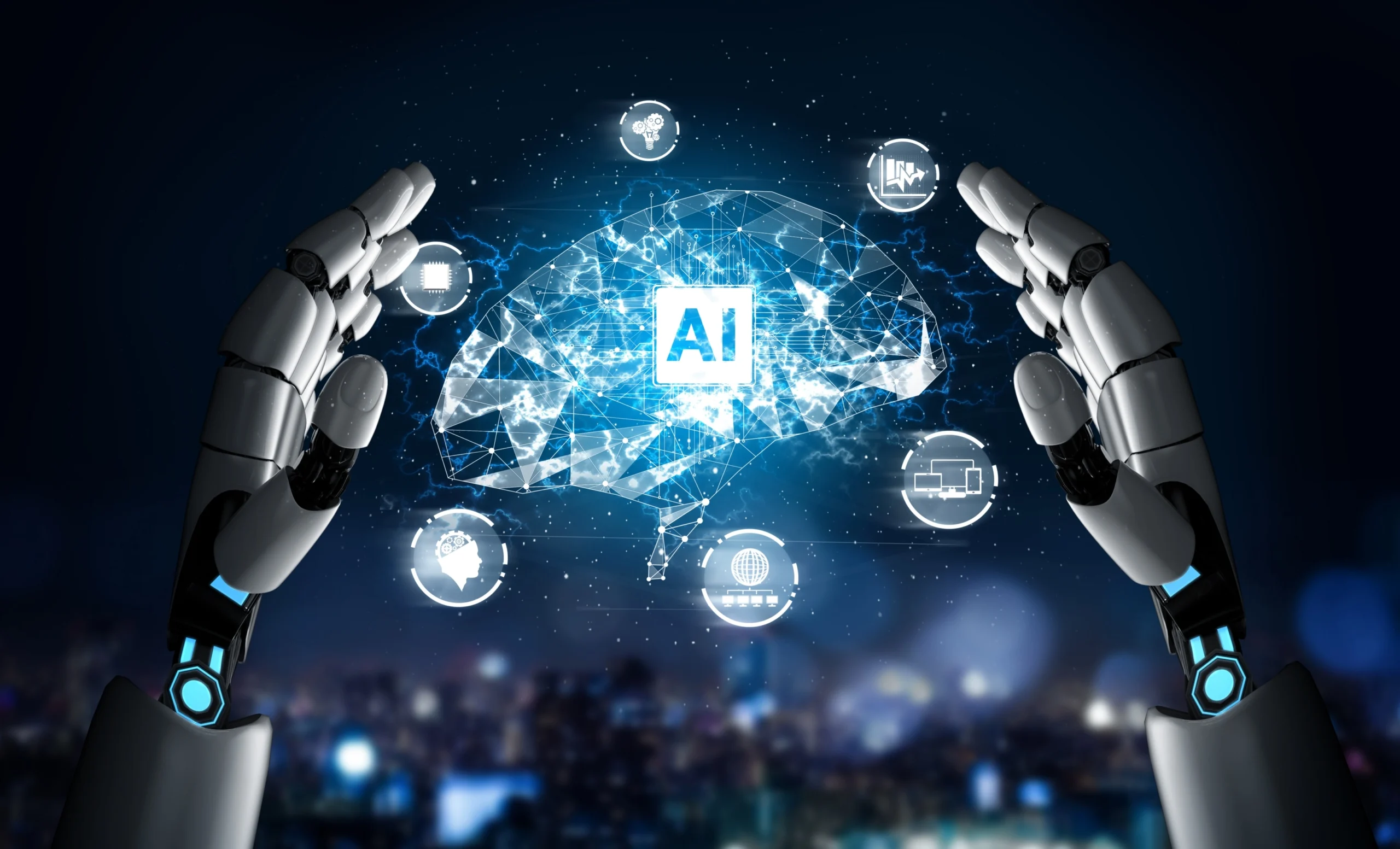Search engine optimization (SEO) has become a critical component of online success in the rapidly evolving digital landscape. As search engines become more sophisticated, leveraging artificial intelligence (AI) in SEO strategies offers significant opportunities for businesses to improve their online visibility and performance. However, this integration also presents challenges that must be navigated carefully. This article explores the role of AI in modern SEO, highlighting the opportunities it presents and the challenges it brings.
Explores the Role of AI in Modern SEO
- Understanding AI in SEO,
- Opportunities Presented by AI in SEO,
- Challenges of Integrating AI in SEO
1. Understanding AI in SEO
Artificial intelligence refers to the simulation of human intelligence in machines that are programmed to think and learn. In the context of SEO, AI encompasses various technologies such as machine learning, natural language processing (NLP), and deep learning. These technologies enable search engines to understand and process vast amounts of data, improving their ability to deliver relevant search results to users.
2. Opportunities Presented by AI in SEO
A. Enhanced Keyword Research
AI-powered tools have revolutionized keyword research, allowing marketers to identify high-potential keywords more efficiently. Traditional keyword research involved manually sifting through data to find relevant terms. AI tools, however, can analyse
A. Complexity and Learning Curve
A. Complexity and Learning Curve large datasets quickly, uncovering hidden patterns and trends that might not be apparent to human researchers. These tools can predict which keywords are likely to perform well based on historical data and current trends, enabling more effective targeting.
B. Improved Content Creation
Content is at the heart of SEO, and AI has significantly enhanced the content creation process. AI-powered writing assistants can generate high-quality content tailored to specific keywords and audiences. These tools use NLP to understand context and create coherent, relevant content. Additionally, AI can help identify content gaps by analysing competitors’ content and suggesting topics that can drive traffic and engagement.
C. Advanced Data Analysis
One of the most significant advantages of AI in SEO is its ability to process and analyse large volumes of data. AI can analyse user behaviours, search patterns, and website performance metrics to provide actionable insights. These insights help marketers understand what is working and what needs improvement, allowing for more informed decision-making. For example, AI can identify which pages have high bounce rates and suggest optimization strategies to improve user engagement.
D. Personalized User Experience
AI enables the creation of personalized user experiences, which is increasingly important for SEO. Search engines prioritize websites that offer relevant, user-friendly experiences. AI can analyse user data to deliver personalized content, recommendations, and search results. For instance, AI can tailor search results based on a user’s past behaviours, location, and preferences, enhancing the overall user experience and increasing the likelihood of conversion.
E. Voice Search Optimization
With the increasing popularity of voice-activated devices, optimizing for voice search has become essential and plays a key role in understanding and processing natural language queries. AI-powered tools can help optimize content for voice search by identifying common conversational phrases and questions users are likely to ask. This optimization can improve a website’s visibility in voice search results, capturing a growing segment of users who prefer voice interaction.
F. Predictive SEO
Predictive analytics, powered by AI, allows marketers to anticipate trends and adjust their strategies accordingly. AI can analyse historical data to predict future search trends, helping businesses stay ahead of the competition. Predictive SEO can inform content strategies, keyword targeting, and even product development by identifying emerging trends and user needs.
3. Challenges of Integrating AI in SEO
A. Complexity and Learning Curve
Integrating AI into SEO strategies can be complex and requires a certain level of expertise. AI technologies are continually evolving, and staying up-to-date with the latest developments can be challenging. Additionally, understanding how to effectively use AI tools requires training and experience. Businesses may need to invest in education and resources to fully leverage AI’s capabilities.
B. Data Privacy Concerns
AI relies heavily on data to function effectively. However, the collection and use of data raise significant privacy concerns. With increasing regulations around data privacy, such as the General Data Protection Regulation (GDPR), businesses must ensure they comply with legal requirements when using AI for SEO. Balancing the need for data with privacy concerns is a critical challenge that must be addressed to maintain user trust and avoid legal repercussions.
C. Algorithm Changes
Search engines frequently update their algorithms to improve search results. While AI can help predict and adapt to these changes, it can also be affected by them. Sudden algorithm updates can impact AI-driven SEO strategies, requiring continuous monitoring and adjustment. Staying agile and responsive to these changes is essential to maintain SEO performance.
D. Quality Control
AI-generated content and insights are not infallible. Ensuring the quality and accuracy of AI-driven outputs is a significant challenge. Human oversight is still necessary to review and refine AI-generated content and strategies. Without proper quality control, there is a risk of publishing low-quality content or making misguided SEO decisions based on inaccurate data.
E. Cost and Resource Allocation
Implementing AI in SEO can be resource-intensive. AI tools and technologies often come with significant costs, and businesses need to allocate resources for ongoing maintenance and updates. Small businesses and startups may find it challenging to invest in AI-driven SEO due to budget constraints. Balancing the investment in AI with other marketing needs is a crucial consideration.
F. Dependence on Technology
Relying heavily on AI can lead to over-dependence on technology. While AI provides valuable insights and efficiencies, human creativity and strategic thinking are irreplaceable. It is important to strike a balance between leveraging AI and maintaining human oversight to ensure that SEO strategies are both innovative and effective.
Conclusion
Artificial intelligence has transformed the landscape of SEO, offering numerous opportunities to enhance keyword research, content creation, data analysis, user experience, voice search optimization, and predictive SEO. However, integrating AI into SEO strategies also presents challenges, including complexity, data privacy concerns, algorithm changes, quality control, cost, and dependence on technology.
To successfully leverage AI in SEO, businesses must navigate these challenges carefully. This involves investing in education and training, ensuring compliance with data privacy regulations, maintaining quality control, and balancing technology with human creativity. By doing so, businesses can harness the power of AI to improve their SEO performance, stay ahead of the competition, and deliver exceptional user experiences in the digital age. The Role of Artificial Intelligence in Modern SEO: Opportunities and Challenges



